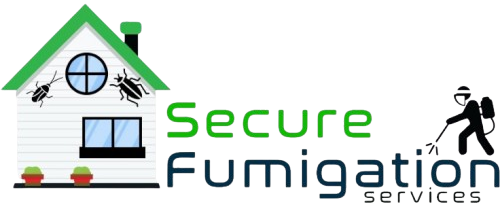Rat & Rodent Fumigation
Dealing with rodent infestations can be challenging, but with the right approach, you can effectively eliminate these unwanted guests from your home or business. This guide covers everything you need to know about identifying, preventing, and treating rat and mouse problems. Rat & Rodent Fumigation
Understanding the Problem
Rodents, particularly rats and mice, are more than just a nuisance. They can:
- Spread diseases through their droppings, urine, and saliva
- Cause structural damage by gnawing on wood, drywall, and electrical wiring
- Contaminate food sources
- Trigger allergies and asthma attacks
Signs of a Rodent Infestation
Early detection is crucial. Look for these telltale signs:
- Droppings: Small, dark pellets found along walls or in secluded areas
- Gnaw marks: Rough edges on wood, plastic, or food packaging
- Nesting materials: Shredded paper, fabric, or insulation in hidden spaces
- Sounds: Scratching noises in walls or ceilings, especially at night
- Greasy marks: Dark smudges along baseboards from rodents’ oily fur
Prevention Strategies
The best treatment is prevention:
- Seal entry points: Inspect your property for holes larger than ¼ inch and seal them with steel wool, caulk, or hardware cloth
- Remove food sources: Store food in airtight containers and clean up crumbs promptly
- Eliminate water sources: Fix leaky pipes and ensure proper drainage
- Reduce clutter: Minimize potential hiding spots by keeping storage areas organized
- Maintain landscaping: Keep grass short and trim vegetation away from buildings
Treatment Options
When prevention fails, consider these treatment methods:
DIY Approaches
- Snap traps: Traditional and effective when placed perpendicular to walls where rodents travel
- Live traps: Humane option for catch-and-release, though requires releasing rodents far from your property
- Electronic traps: Quick and relatively humane options that use electricity
- Ultrasonic repellers: Mixed effectiveness but can complement other methods
Professional Solutions
- Professional baiting: Strategically placed rodenticides managed by experts
- Comprehensive exclusion: Thorough sealing of entry points with follow-up inspections
- Integrated pest management: Customized approach combining multiple strategies
When to Call Professionals
Consider professional pest control when:
- The infestation is severe
- DIY methods have failed
- You’re concerned about health risks
- Structural damage is evident
- You need a preventative maintenance plan
Cleanup After Treatment
Once the rodents are gone, proper cleanup is essential:
- Wear gloves and a mask
- Ventilate the area before cleaning
- Disinfect all surfaces with appropriate cleaners
- Dispose of nesting materials and contaminated items in sealed bags
- Repair any damage to prevent future infestations
Conclusion
Rodent control requires patience and persistence. By combining prevention strategies with appropriate treatment methods, you can effectively manage and eliminate rodent problems. For severe infestations, don’t hesitate to consult with pest management professionals who can provide targeted solutions for your specific situation.
Remember, the key to successful rodent control is consistency and vigilance. Regular inspections and maintenance will help keep your space rodent-free for the long term. Rat & Rodent Fumigation

